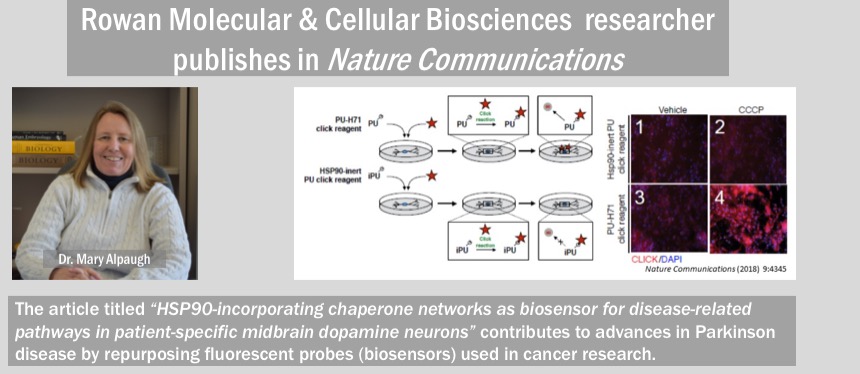naturecommunications
naturecommunications
Molecular & Cellular Biosciences Associate Professor publishes in Nature Communications
Molecular & cellular biosciences assistant professor Dr. Mary Alpaugh has 20 years of experience in the field of cancer biology, with particular expertise in the study of inflammatory breast cancer. Her research focus is determining the molecular mechanisms of metastatic progression. In this effort she has established many patient-derived xenograft models. Most significantly, she established the first (and only) human transplantable inflammatory breast cancer (IBC) xenograft, MARY-X, in immune deficient mice, which precisely captures the human IBC signature phenotype.Dr. Alpaugh has also made significant contributions in the area of precision medicine by establishing an ex vivo technique as well as fluorescent probes/live cell sensors of targeted therapy. Both are used to identify patients more likely to respond to the experimental drug of interest. In a recent Nature Communications publication the fluorescent probe/live cell sensor of a targeted therapy of HSP (heat shock protein) 90 was re-purposed to identify distinct pools of stress HSP90 in Parkinson disease.
